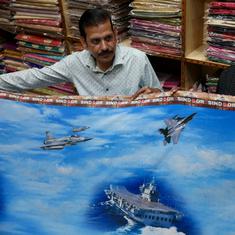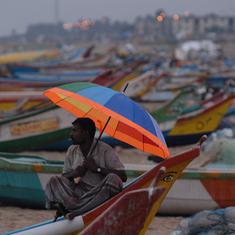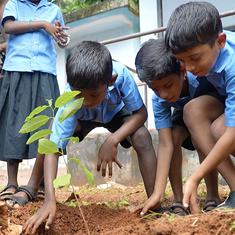The IPL has seen plenty of financial scandals since its inception in 2008. Here is a list of the six biggest.
BCCI vs Pune and Kochi
In March 2010, Pune and Kochi became the league's two newest franchises. They were sold at a value that exceeded that of the original eight franchises put together. The Sahara India Pariwar bought the Pune franchise for a staggering US$370 million. Kochi was bought for US$333 million by a consortium of five companies called Rendezvous Sports World.
However, relations between the Board of Control for Cricket in India and the two franchises headed south soon afterwards. The two teams were unhappy with the board’s decision to reduce in the number of games played in a season. Both franchises later defaulted on their bank guarantees. Kochi was thrown out of the tournament in September 2011, while Pune got the boot in October 2013.
Lalit Modi vs Kochi
Barely a month after its formation, the Kochi franchise was in the news over details of its ownership structure. Lalit Modi, IPL chairman and BCCI vice-president at the time, revealed the consortium's ownership structure on Twitter, which the franchise termed as a "breach of faith" and immediately took it up with the BCCI. Modi denied any breach: "All team owners of the IPL have been revealed in the past," he told CNN-IBN. "I don't think there is anything to hide in it. We're a public body." He went on to add that the Kochi franchise had "a lot to hide and as such have lied about who are the actual owners of the shares."
The revelations came after Kochi was asked to list all their owners, which is when the IPL realised that there were "secret partners" in the consortium. Shashi Tharoor, a Union minister with a seat from Kerala, was reportedly one of these secret partners. But Tharoor denied the allegations and said that he had only played a "mentoring role" to the franchise. However, the shareholding pattern revealed that one of the equity holders was Sunanda Pushkar, who had not yet married Tharoor and was only known to be a close associate of his. This was construed to be a conflict of interest for the Union minister and led to his resignation as Minister of State for External Affairs. Pushkar gave up her holding in the franchise. Tharoor and Pushkar were married in August 2010.
Last month, the controversy was back to haunt Tharoor when Pushkar tweeted that she had taken “upon myself the crimes of this man during IPL." Pushkar was found dead in her hotel room in Delhi a couple of days later.
BCCI vs Lalit Modi
Immediately after the conclusion of the third edition of IPL in 2010, the BCCI suspended IPL chairman Lalit Modi for "alleged acts of individual misdemeanours". These included financial irregularities relating to the bidding process for the Pune and Kochi franchises, threatening the Kochi franchise with the termination of their agreement, selling media and internet rights without proper authorisation and conspiring to set up a rebel league in England. Modi denied all the charges and accused BCCI president Shashank Manohar and the secretary N Srinivasan of trying to settle personal grudges against him.
Modi faced allegations from other bodies as well. The Enforcement Directorate wanted to question him about potential foreign exchange violations related to the second season of the IPL held in South Africa. The Chennai Police were investigating alleged criminal misappropriations by Modi of BCCI funds worth Rs 470 crore, after Srinivasan filed a criminal complaint against him. Meanwhile, the Mumbai Regional Passport Office revoked his passport after Modi refused to appear before the Enforcement Directorate due to alleged threats to his life. By then, he had taken refuge in London and remains there.
BCCI vs Rajasthan Royals and Kings XI Punjab
Late in 2010, the BCCI alleged that the franchises from Rajasthan and Punjab violated their franchise agreement and therefore should be terminated. As a result, there was a lot of confusion over the participation of the teams in the 2011 IPL, but eventually both teams did play. Cases against both the franchises were ultimately resolved and they continue to be a part of the tournament. But this was not before Punjab agreed to pay a fine of Rs 1 crore for their alleged breaches.
BCCI vs World Sport Group
According to a deal signed in 2009, Multi Screen Media Satellite, a Sony Entertainment Television subsidiary in India, had to pay Rs 425 crore to World Sport Group for the global rights to broadcast the IPL. However, the BCCI claimed that the "facilitation fee" for broadcast rights in the Indian subcontinent was an "improper payment". It cancelled its rights agreement with WSG on the grounds of fraud.
MSM Satellite, which had already transferred Rs 125 crore, stopped payment to WSG and went on to renegotiate a nine-year contract with BCCI for the worldwide telecast rights for Rs 8,200 crore. Subsequently, WSG initiated arbitration proceedings against MSM Satellite, saying that they were the original owners of the worldwide telecast rights and were entitled to the facilitation fee.
The case has not been resolved.
The spot-fixing scandal
The biggest scandal to hit the cash-rich tournament is the spot-fixing saga that surfaced towards the end of the 2013 edition when three players from the Rajasthan Royals – S Sreesanth, Ajit Chandila and Ankeet Chavan – were accused of spot-fixing. While no action was taken against the Rajasthan franchise, one of its co-owners, Raj Kundra, was called by the police for questioning.
However, the most high-profile casualty in the case is Gurunath Meiyappan, the team principal of the Chennai Super Kings. What raised the stakes sky-high was the fact that Meiyappan is the son-in-law of current BCCI president N Srinivasan, whose company India Cements owns the Chennai franchise.
In February 2014, the Supreme-Court-appointed Justice Mukul Mudgal’s committee investigating corruption charges against team owners of Chennai Super Kings and Rajasthan Royals, found Meiyappan guilty of betting and passing on match-related information to bookies during IPL 2013. The report also said that further investigation is necessary against Kundra, who is also facing charges of betting and match-fixing.










